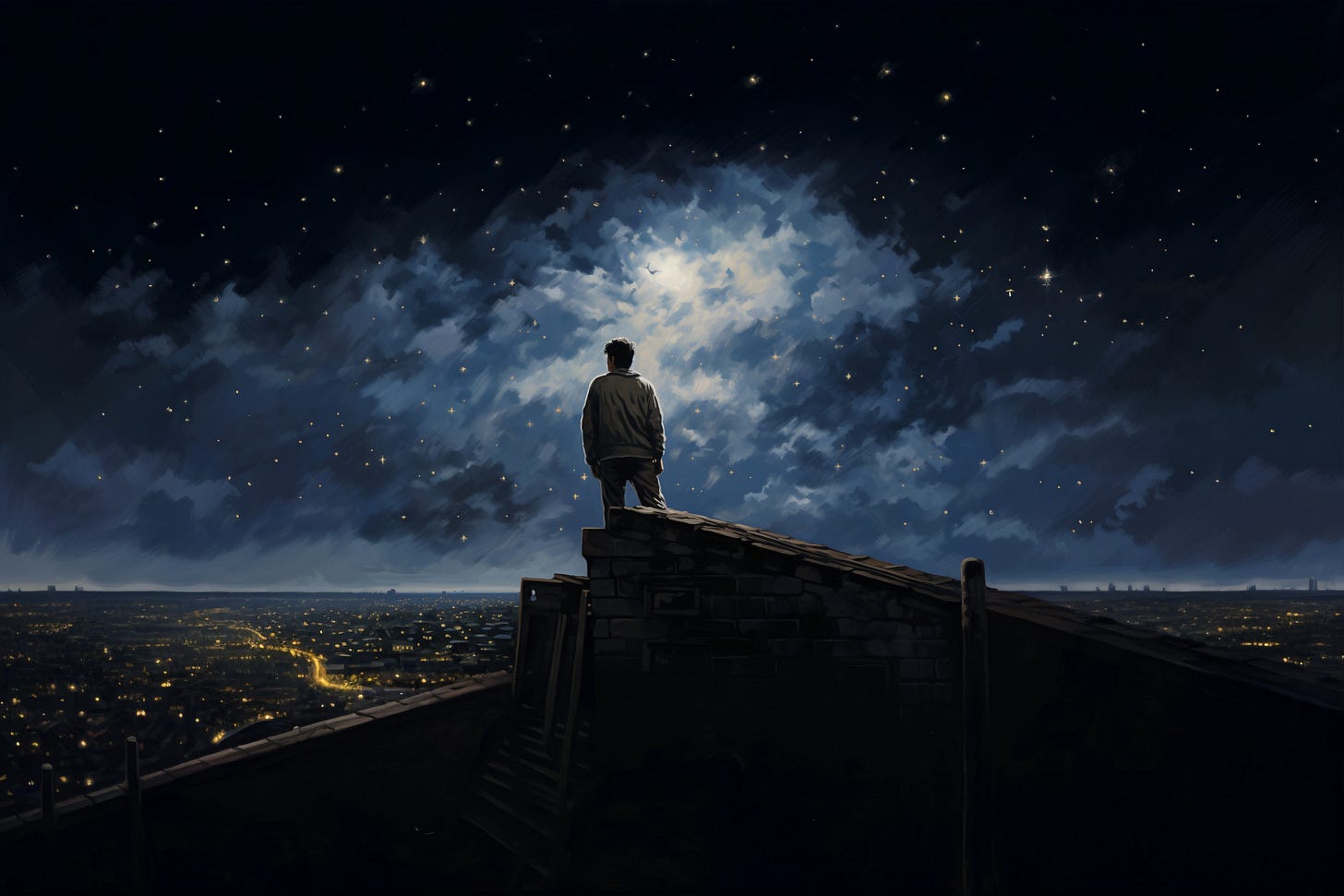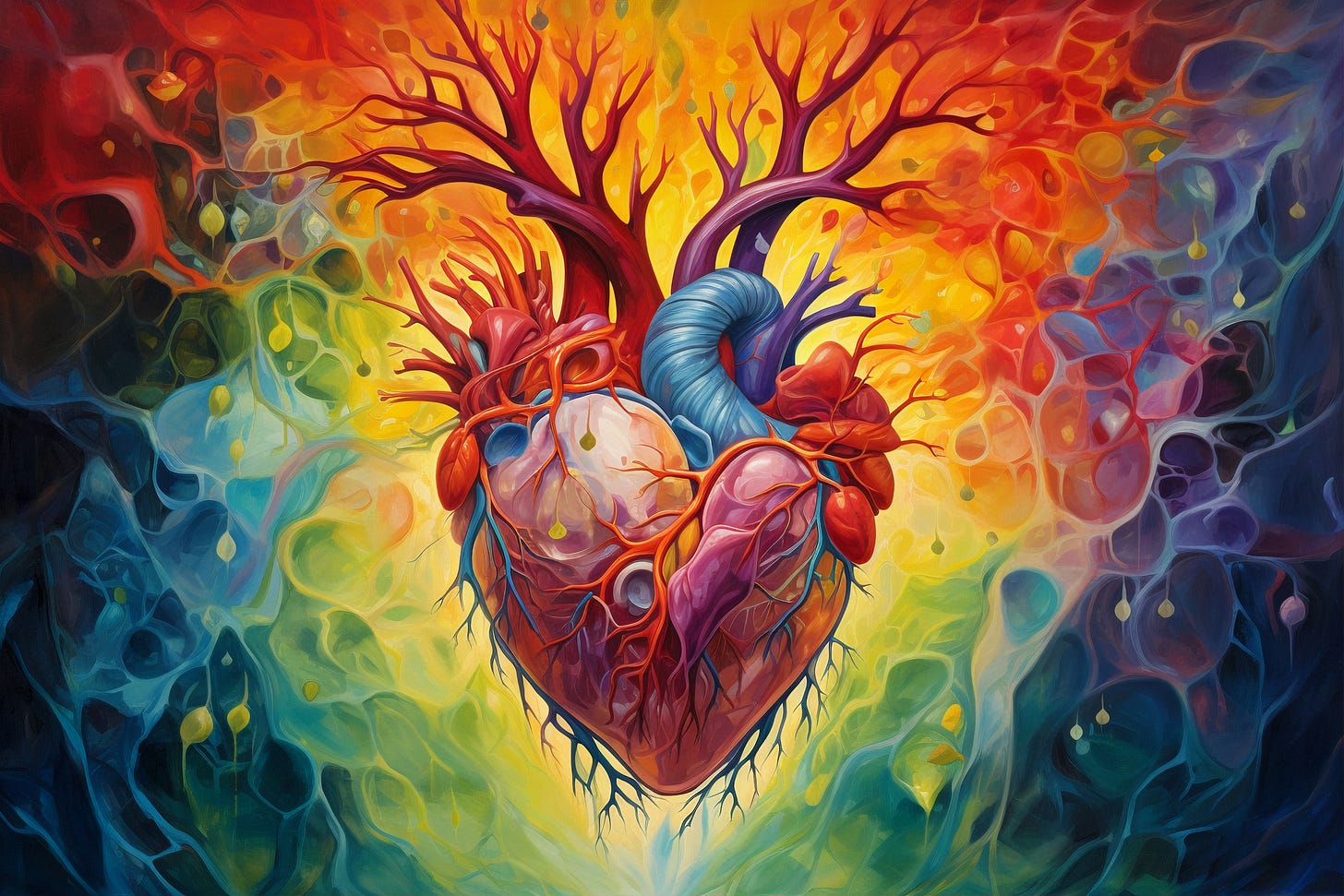The shrill blast of the shofar pierces the solemn air, its primal cry resonating within our souls. As the new year dawns, this liminal moment cracks open our awareness to glimpse the infinite vastness cloaked in mundane trappings. On Rosh Hashona, we will be crowning our one true God. But what exactly does a one true God mean?
Recently, I read an article that was gratifying for its nuanced critique of the militant new atheist position. We all know them. These are the guys who fervently proclaim Religion to be the cause of all evil. They insist that the world would be an enlightened paradise if it weren't for those pesky spiritual types. Yet, these same individuals have no replacement for the transcendent ethical framework needed to identify objective evil in the first place. To be clear, the article's author did not believe in God. However, he maintains that many secularists are unfairly dismissive of why religious people find belief in God persuasive.
In his writing, the author critiques a glib but oft-repeated Athiest talking point that runs as follows: "I contend we are both atheists. I just believe in one less god than you do. When you understand why you dismiss all the other possible gods, you will understand why I dismiss yours." 1
The fatal flaw here is that the "one fewer god" rebuttal responds to an assumption of quantitative disparity when the problem is of qualitative difference. Belief in God fundamentally shapes one's cosmology, sense of meaning, purpose, and ethics. By contrast, the atheist worldview arises from premises that do not rely on religious assumptions, scriptures, or divine authority. While monotheists and atheists share the attribute of disbelieving in 99% of the same gods, the 1% difference is qualitatively monumental. Believing in just one God constitutes a way of making sense of existence, which is diametrically opposed to believing in no God at all. A Theist is not just an Athiest with a couple of different beliefs. He is someone who inhabits an entirely separate reality.
Until now, I have paraphrased the writer's argument, but I think he needs to take it further. When an atheist claims to just believe in one less god than a monotheist, he equates our Creator with one of the various pagan deities. In reality, there is a gaping chasm between the monotheistic and polytheistic conceptions of divinity. For us, God is the supreme transcendent Creator of the universe, eternal, omnipotent, infinite, from which all existence derives. By contrast, the Polytheistic pantheon housed superhuman inhabitants of the natural world, not the ultimate source of being itself. Zeus wielded' extraordinary2 powers but was still an anthropomorphic personality driven by desire, ambition and a thirst for recognition. The Greek gods were essentially superheroes with major personality issues - think Donald Trump meets Spiderman after a drink too many. It is of particular note that the article in question does not raise our argument.

At this point, you are probably wondering why I'm harping on about all of this. While others may be Atheists, we are believers, the children of believers. Therefore, most of what I have written is intuitive to us, even if we have yet to articulate it in words fully. Fair enough. But I'm focusing on this article because it sheds light on a way of thinking that is almost impossible to avoid in today's world. Let me explain.
Since the 17th and 18th centuries of Enlightenment, intellectual upheaves have radically altered humanity's relationship with the divine. Philosophers like Descartes emphasized reason, empiricism, and scepticism, positioning human perception and rationality as the central means of understanding reality. Society gradually understood the universe as a demystified mechanical system that could be objectively observed and analyzed.
This change in conciousness instilled a sense of separation from the natural world in modern man. Rather than feeling immersed in creation, we began to see ourselves as detached spectators, peering at the world from behind our eyes. Perched on the narrow ledge of materialism, we gaze up at the starry sky, seeing only hydrogen clouds and gravity's pull. With our analytical minds, we dissect existence into its constituent parts and examine how they interact like clock gears. This has allowed us to quantify, predict and manipulate our environment to an unprecedented degree.
Our sense of the divine has become increasingly distant as we have adopted a third-person, external vantage point of the universe. Once intimate and personal, our image of God has been rationalized and objectified. We now treat God more as an intellectual hypothesis to be proven or disproven through argumentation and evidence. From this seemingly neutral and all-encompassing perspective, the differences between the monotheistic God and pagan deities blur. If we can truly stand back and comprehend all of existence, God becomes sucked into creation rather than transcending it. Man then understands both the monotheistic God and mythological deities as merely superpowerful agents within the realm of being. They are distinguished from each other - and even from us!- only by degree rather than kind.
Critically, however, the scientific outlook does not paint a complete picture of reality. Despite our illusions of objectivity, we remain embedded in the cosmic fabric, both shaping and being shaped by the universe's interconnected whole. We will never be able to take a 'view from nowhere'.
I have heard it asserted that human beings are equally capable of creating their own meaning as they are of interpreting art. As far as some secular thinkers are concerned, there is no significant difference between them. But there is a distinction. And it's a major one. Namely, man stands outside the work of art, whereas he is inextricably part of existence. Why is this such a crucial distinction?
A system is its own circular referent - it can describe itself but not judge its purpose. All systems, therefore, must derive meaning externally. Without this exterior context, a structure amounts to little more than a collection of disjointed and ultimately meaningless moving parts. These are stripped of all genuine explanation or utility. To possess substance and coherence, an entity needs an outside source that lends its definition and purpose. Consider the human cardiovascular system. One could view the pumping heart and pulsing veins as autonomous. However, zooming out reveals that this whole operation exists to sustain the higher-order entity of which it is a part - the living human body.
How can some individuals equate interpreting a work of art with giving meaning to existence? The answer is that these people incorrectly believe we can step outside reality and observe it like one views paintings in a gallery—such a line of thinking amounts to looking down at your feet to see your own eyes.
Ultimately, even as believers in one true God, we must be wary of unintentionally relegating Him to just another component of being rather than its transcendent source. This echoes the atheist's flawed assumption that dismissing the monotheistic God is no different than rejecting mythological deities. And much like thinkers who wrongly imagine one could stand outside the cosmos and imbue it with meaning, we, too, can slip into a mindset that objectifies God.
I've mentioned before how our sages describe God as 'hamakom', literally the place. This is because a place is that which gives dimension and allows for life to unfold. Just as Place surrounds and sustains all things without constituting an object amongst objects, so too the Divine Ground underlies all creation in absolute otherness. God is not merely a form that can be seen or grasped but rather the bounds that render everything else conceivable. Place is silent and unseen, yet we are entirely dependent on it. Our Sages thus direct us toward contemplating how the Very Source of Reality transcends any categories while still tightly embracing all things.
And so, as the new year dawns, we are called to contemplate our Creator's unfathomable vastness. On Rosh Hashanah, we crown HaShem our King, affirming that divinity transcends all limits. God is one, eternal and infinite, the wellspring from which existence flows. We stand in awe of the unbounded presence that permeates creation. How small are the categories of our minds before our Father in Heaven?
As we gather in prayer and song on this day of trembling, proclaiming the supremacy of the Divine, we catch a fleeting glimpse of that mystery that transcends yet sustains all. Rosh Hashanah beckons us from the flatness of an objectively observable material world into deeper awareness. The shofar's call echoes His indwelling spirit in all places. May this new year draw us ever closer in wonder and love to the source of meaning and being.
Have a Sweet New Year, and Keep Pondering!









I’m not even Jewish and I find these messages similar to my own Christian faith. Thank you for sharing.
That is what the medrash means, in my opinion, about Avraham Avinu realizing, step by step, that G-d could not be anything within the Universe (like the sun etc.) and had to be outside it. That is, the infinite n-th dimension.